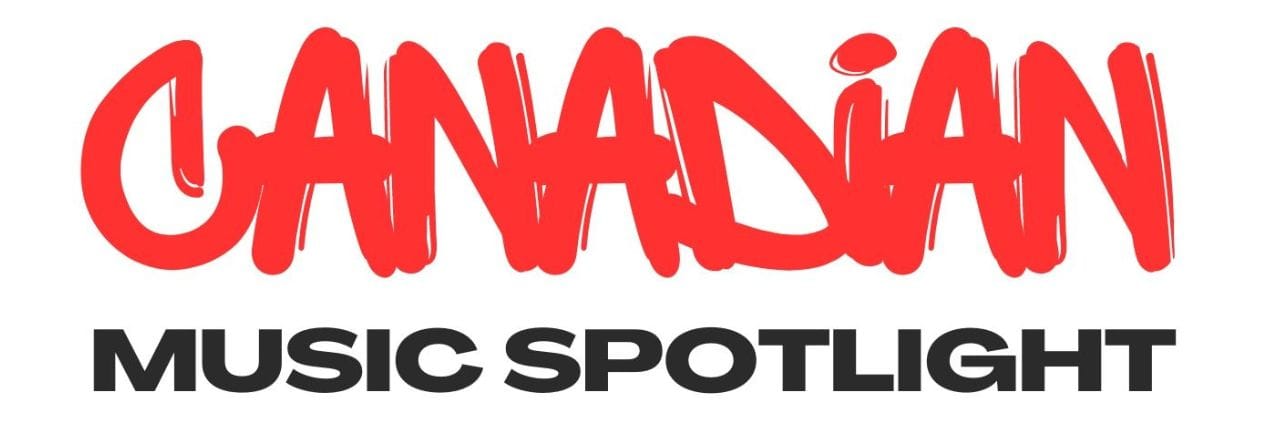Bruce Cockburn Is On a Roll

By Matt Bauer
Bruce Cockburn has been riding a late career peak that rivals Bob Dylan. With a distinguished 56-year sojourn marked by politics, spirituality and a nearly unrivalled musical diversity that has seen him embrace folk, jazz, rock, and global styles not to mention his highly respected activism and compassionate and socially conscious lyrics, the now 78-year-old Cockburn remains an iconoclastic national treasure, having received 13 JUNO awards, an induction into the Canadian Music Songwriters Hall of Fame, a Governor General’s Performing Arts Award, an Officer of the Order of Canada and most recently a star on Canada’s Walk of Fame.
Time takes its toll, he sings on the opening cut “On A Roll,” from his latest and 38th album, O Sun O Moon, But in my soul/ I’m on a roll. With Shawn Colvin guesting on vocals, the infectious shuffle is an acknowledgement that while mortality is inescapable and we’re living in an era of disarray, Cockburn’s voice and worldview remain as timely as ever setting the tone for one of his finest efforts in a musical trajectory that has already seen many triumphs.
“I'm not optimistic about the future of the world,” confesses Cockburn via phone from his home in San Francisco. “I mean, I'm hopeful about it. [“On a Roll”] is really an expression of my own situation and my own reaction to what’s around me. With a song like that you always want the listener to feel the same energy. You want people to think ‘that could be me.’ When anybody listens to a song, we always think that it's us we're talking about; that's being sung about. I mean, unless it's so autobiographical that you can't do that. One of the things that songs do is they invite a kind of empathy. And so the listener thinks, ‘yeah, I feel this way. I could feel this way or I'd like to feel that way.’ And in that sense, you could see that song as optimistic and hopeful. For me, it really just says how I feel.”
Recorded in Nashville with his long-time producer Colin Linden, O Sun O Moon, brings Cockburn’s spirituality (which has always been one of his lyrical motifs) to the fore. “[It’s] partly the perspective of age and partly what I've always done,” he explains. “But it is more of an obvious part of things on this album than on previous ones.”
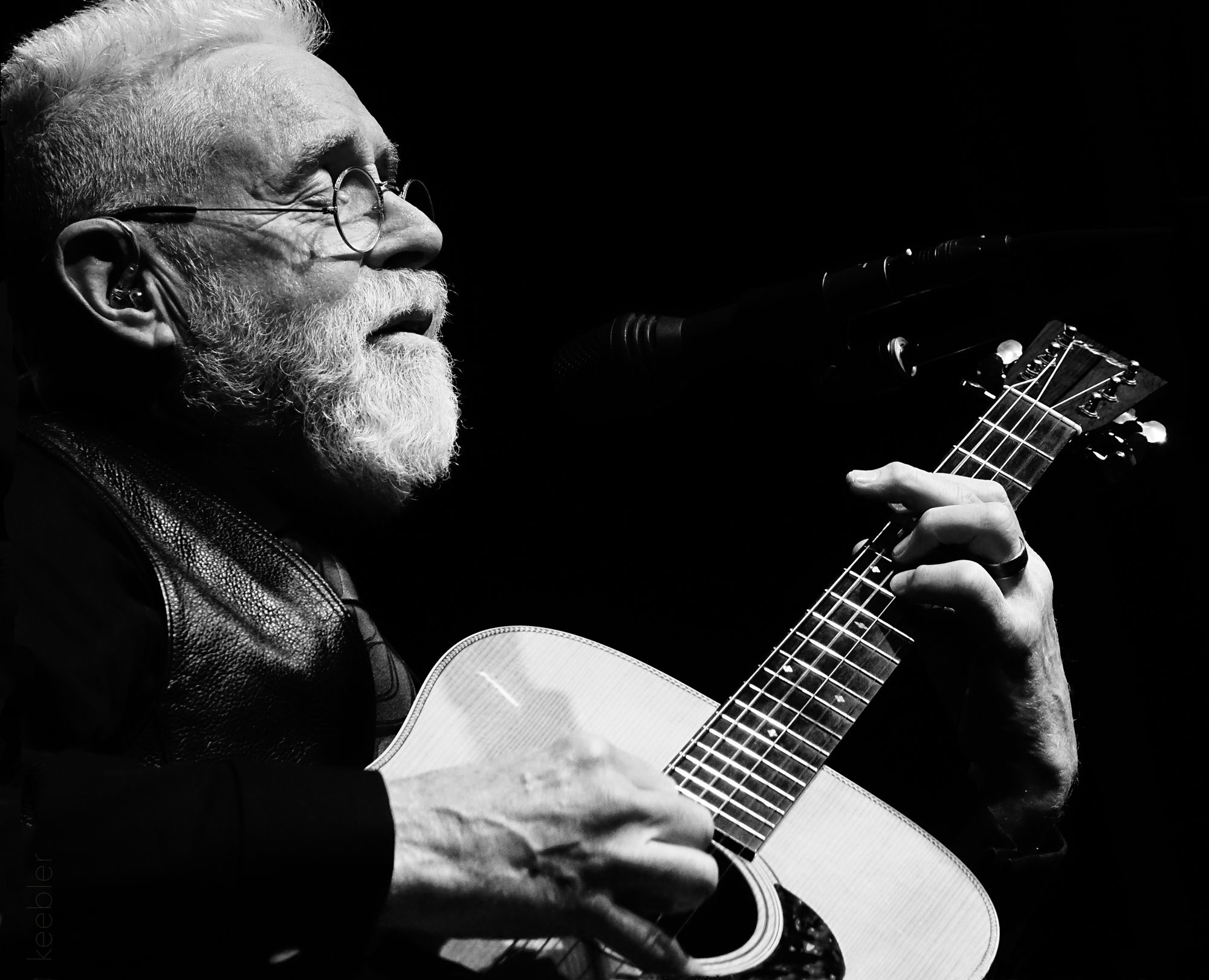
The stirring “Orders,” “O Sun by Day O Moon by Night,” with its prayerful chorus that Cockburn says came to him in a dream and the hymnal “Us All” reflect Cockburn’s progressive Christian faith in a time of upheaval, rendered with the expected exquisite musicianship and his signature passionate vocals.
“The social situation that prevails including the pandemic and all the polarization that happened, especially in the States in the last five years, “On A Roll,” “Orders,” and “Us All” are certainly products of that atmosphere,” he explains. “You know, they're not really directed at the pandemic. Whether we’re just seeing the social scene that's unfolding that includes the way we've all been kind of pushed around by it and have been polarized even further than what was happening before the pandemic hit. Between that we had Trump and all of that, which we still have, of course. Then along comes the pandemic and I remember I've said this to audiences a couple of times, but if you if you want to look for a conspiracy, because it's such a popular thing to do these day take a look at the satanic conspiracy that put Donald Trump and the pandemic together in the same decade. That's the conspiracy that I worry about. But we're up against whatever we're up against. Those songs reflect my feelings about that.
“The other big factor that runs through the album is I suppose, my age,” he continues. “I'm seeing things from a perspective that's slightly different. It includes a lot of the same stuff, but the older you get, the more your perspective kind of shifts. And that colours a lot of the album.”
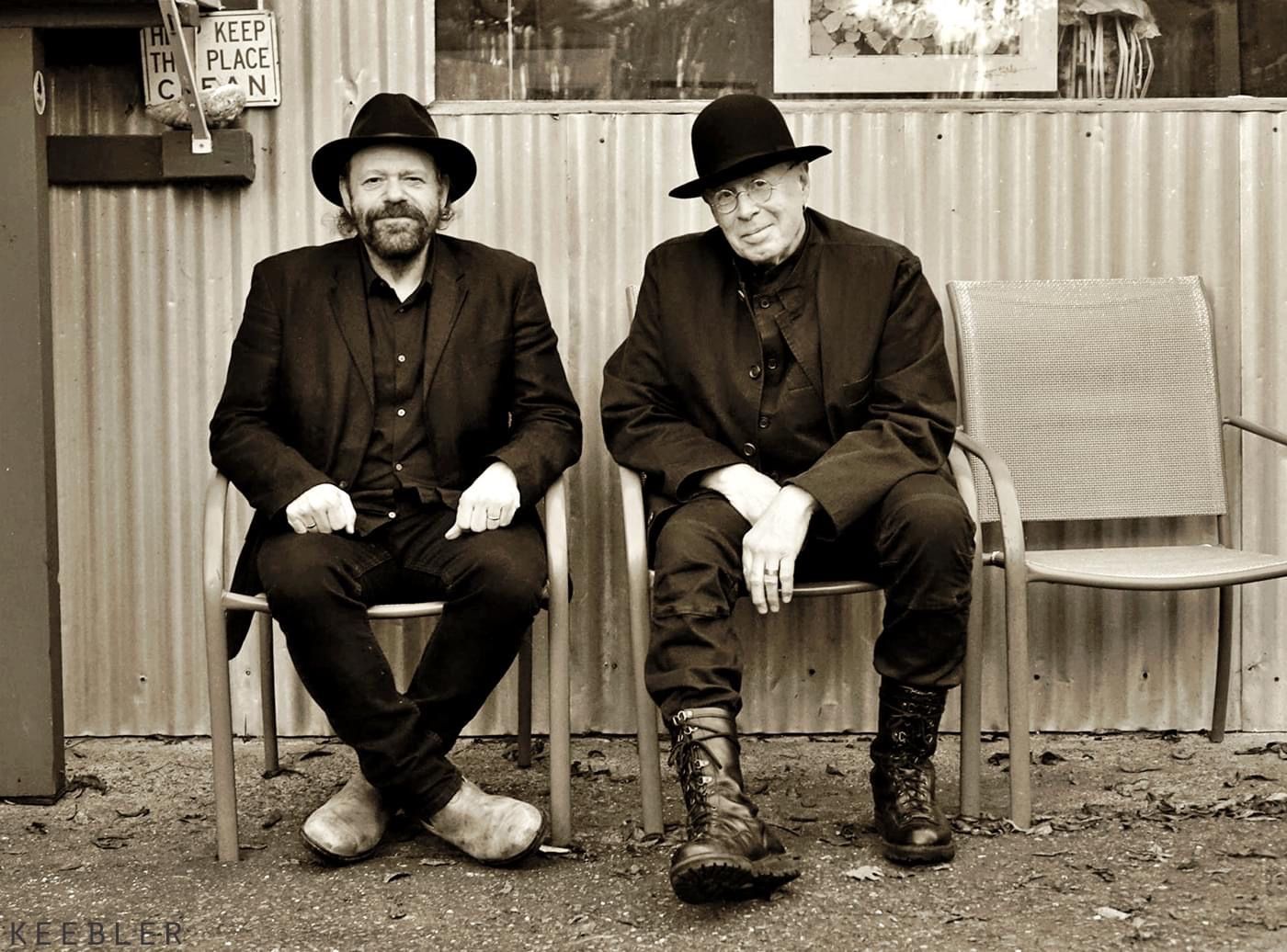
Written in 2021 while vacationing in Maui with Dr. Jeff Garner (the lead pastor of San Francisco’s Lighthouse Church, which Bruce attends) “Colin Went Down to the Water” is an achingly poignant requiem for a drowned friend with a gorgeous harmony courtesy of Allison Russell. Along with Russell and Colvin, O Sun O Moon also features guest appearances by Sarah Jarosz, Jenny Scheinman, Janice Powers, Buddy Miller, Ann and Regina McCrary and on the pertinent “To Keep the World We Know” which calls out global warming and greed, Susan Aglukark.
“Susan actually contacted me and wondered if we could write a song together,” explains Cockburn. “I haven't done very much of that over years and it was an interesting idea and I'd met Susan before, I like her. Colin and I, mostly and [my manager] Bernie Finkelstein to an extent, all talked about who we might want to have appear on the album. Allison Russell’s name came up right away. I had met her before. We were on a radio show together when she was in Birds of Chicago. Once we started thinking about getting her on the album, I listened to her stuff and I thought it was fantastic. I was really pleased that she was able and willing to do it. Sarah Jarosz, I had my eye on her for a while. I've listened to her a bit and really like her playing and singing and turned out she's a great person, too. So, all of that went very smoothly. My friend Jenny Scheinman happened to be in Nashville at the right time and able to come over and put some stuff on record. Buddy Miller—Colin Linden’s good friends with Buddy and I've met him many times. I'm glad for every single person who participated in the [album] and honoured at their presence. But the people that kind of really surprised me and in a wonderful way and not because I didn't expect them to be good and they were but because of what they came up with were Jim Hoke and Jeff Taylor. Jim played marimba and put a lot of effort into the horn arrangements—pulling out one horn after another. Jeff plays the accordion and came up with the most beautiful things. I mean the accordion is hardly simple but he just came up with the most simple or not things.”
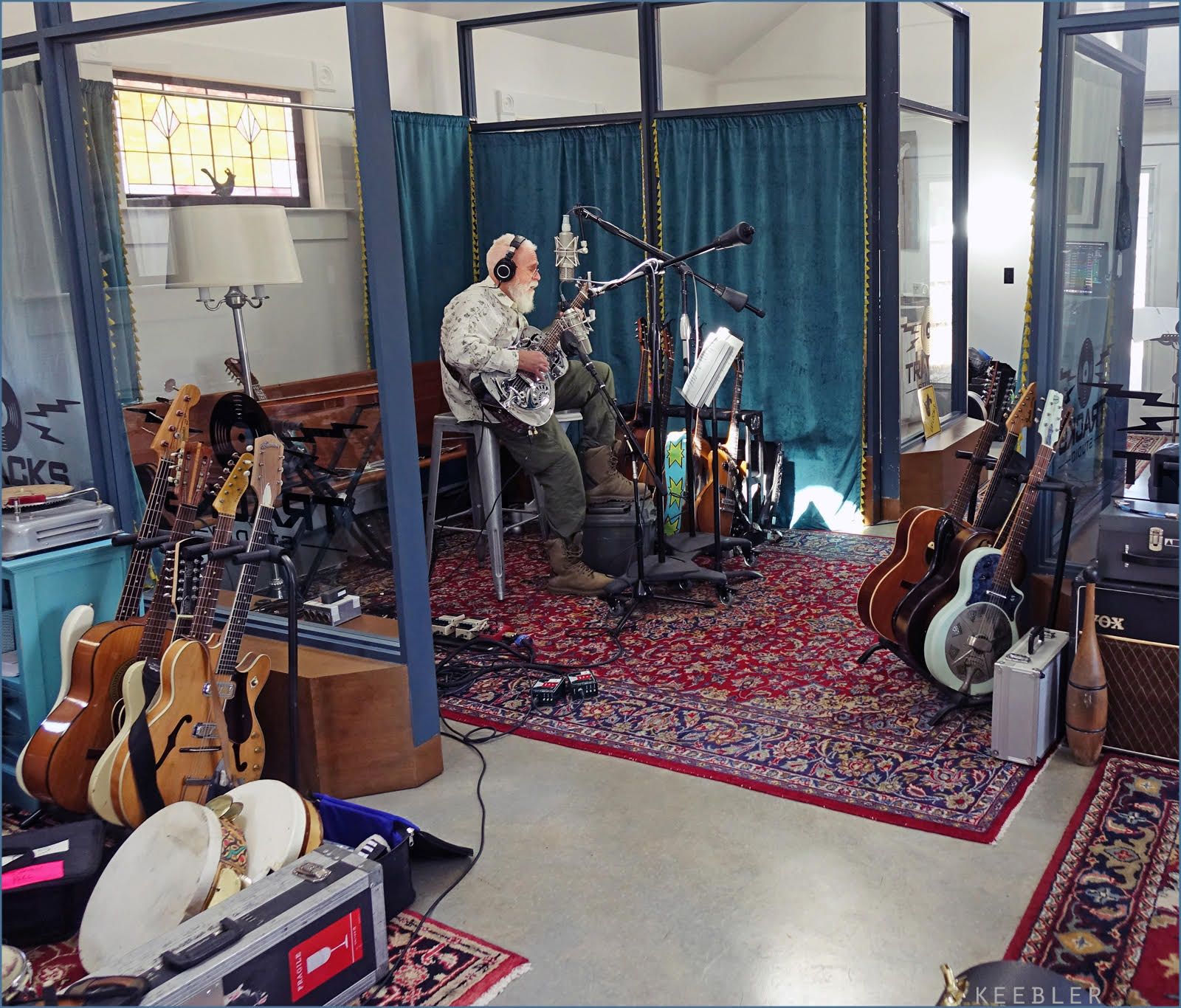
O Sun O Moon is Colin Linden’s 11th production credit on a Bruce Cockburn album. Aside from his own impressive career as a solo artist and co-founder of Blackie and the Rodeo Kings, the Toronto-born multi JUNO award-winning guitarist, songwriter and record producer has worked with a plethora of artists including Bob Dylan, Gregg Allman, Emmylou Harris, The Band, and Lucinda Williams, among many others.
Having met Cockburn at the age of 12, and eventually joining his band in 1991, Linden calls him a mentor. “He was very encouraging and kind to me when I was coming up,” says Linden. “I always loved his music and as he [went] in different directions, I was always fascinated and I was always a fan. In 1991 he had just made a record Nothing but a Burning Light. He called me to ask me to help him put together a band for [for the] tour. And it was the phone call that changed my life, it’s one of the greatest phone calls I've ever gotten in my life.”
“There's a lot of enjoyment, a lot of laughter and our musical tastes overlap,” says Cockburn of his working relationship with Linden. “We like some stuff that the other one isn't quite as keen on but when our tastes meet it’s a huge area full of all kinds of great stuff. So we've got a lot of language in common musically. We get it. The communication is very good and I really have relied on him to get sounds in terms of how we're going to approach the songs that decode a collaborative effort. The songs are pretty developed by the time I'm willing to play them for anyone. So he's working with something that's pretty solidly established in terms of what the voice and guitar are doing. And then it's a question of ‘What kind of sounds are we going forward with? What kind of emotional feel?’ We talk about all these things before we start and as we go along. And then as people are in contributing their parts other people will have ideas saved.’ Let's try this. Let's try that.’ It just flows along pretty well.”
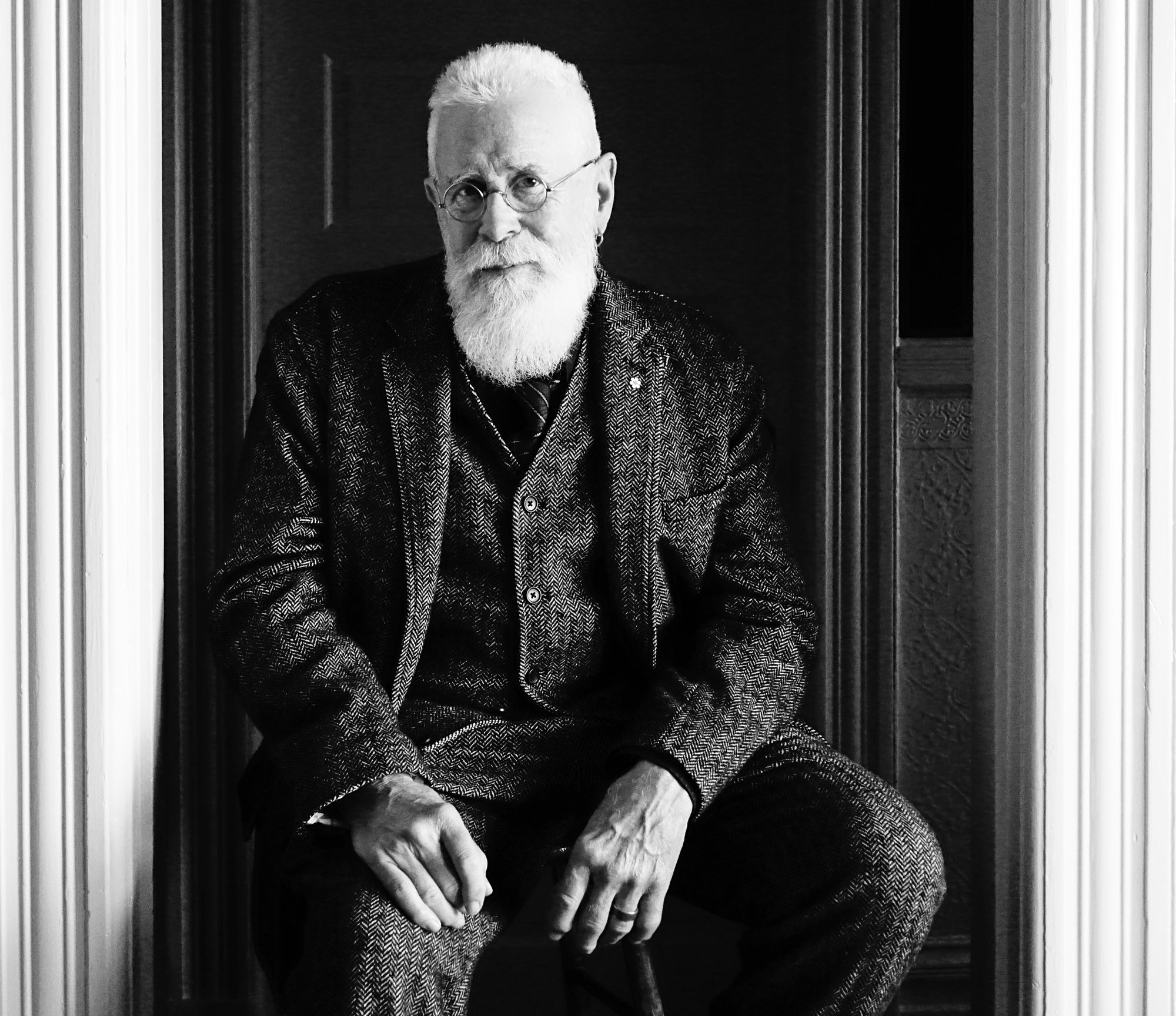
In contrast to recent albums like 2017’s Bone on Bone, Linden says that the recording process for O Sun O Moon differed in that Cockburn favoured less of a “band on the floor” approach. “Bruce wanted to start with the songs and he wanted [percussionist and drummer] Gary [Craig] to be involved in cutting stuff with him and we could add things from there on. So we kind of took it from that point of view. Gary played a percussion part and then we overdubbed the rhythm section. We did everything sort of incrementally. So we got a different take on the arrangements and I kind of felt that the people who would make the greatest contributions to the record were people who were virtuosic and arrangement-based.”
The result is another superb chapter in an ever evolving journey in the life of an artist who has refused to sit still, and in turn, has helped to re-define the singer-songwriter tradition.
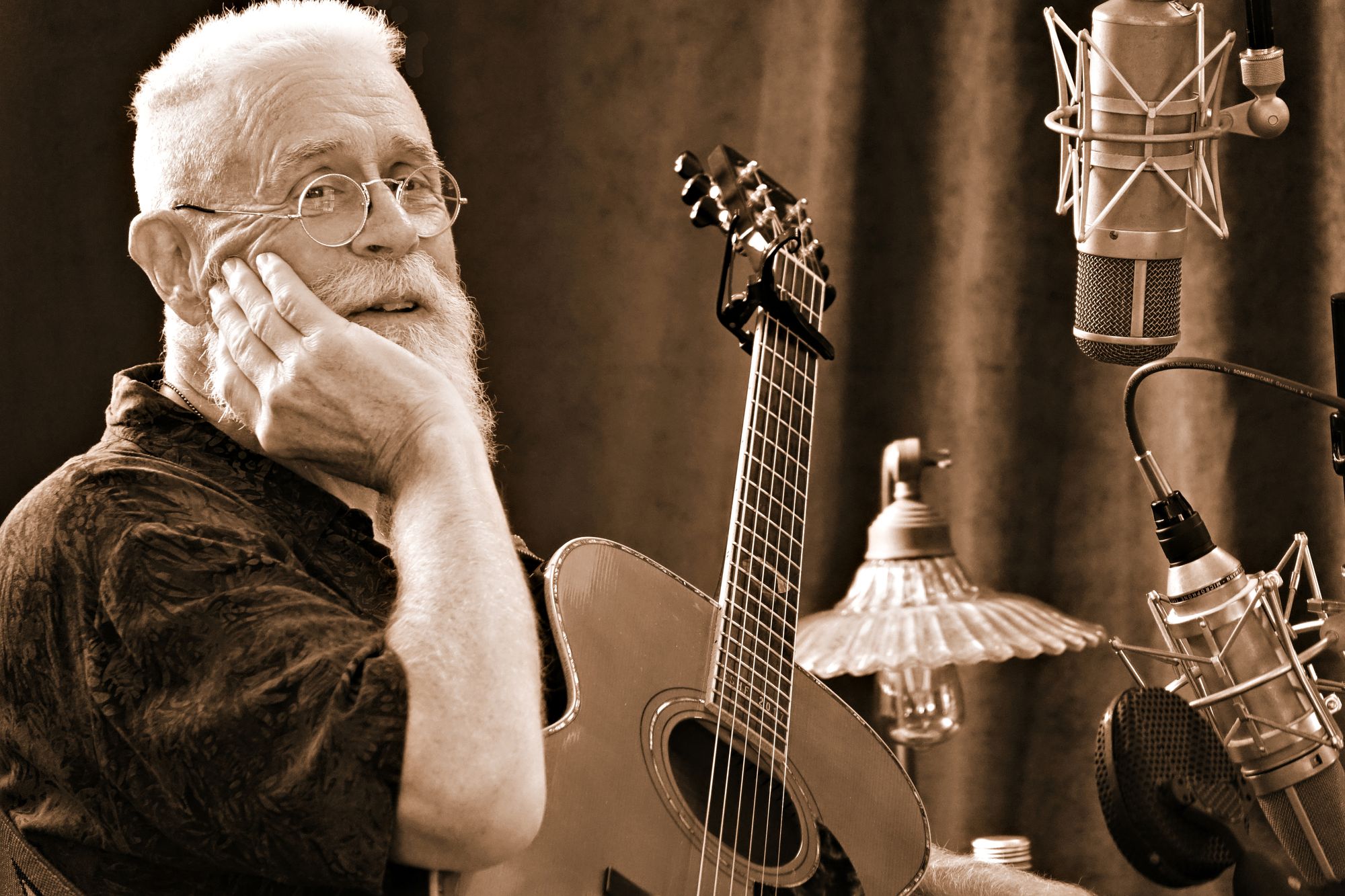
“I’ve always been kind of restless in musical terms,” he confesses. “So whenever I hear something that I like, I want to incorporate it into my songs, too. There have been influences from all sorts of different directions as a result of that tendency. I haven't really changed how I write, but I have changed the flavour of it by bringing in reggae, rock and jazz elements. In the beginning, I was listening to ethnic music from all over the world— laments from Azerbaijan and Tibetan monks chanting and African music—I spent years absorbing that stuff and it comes out from time to time in different ways. But, I also listened to a lot of The Greenbriar Boys and The Country Gentlemen and a lot of blues. Before that point, I was soaking up that stuff and the Beatles and The Rolling Stones and Bob Dylan. At this point, I haven't heard as many new things because I've heard a lot of stuff already [laughs]. The last time I remember really wanting to do something like what I was hearing was when I was listening to Amon Tobin and other electronica composers. And I'm thinking, ‘the grooves are great’ and so much [resembles] what I do—the chill end of it. Not the dance stuff, but the stuff that was intended to be listened to had so much in common with what I was doing with the guitar anyway, which is basically a drone and a rhythm and some short term events happening overtop of the drone and the rhythm. And that's kind of what my guitar playing is made of. So I got quite infatuated with that for a while. But lately when I'm in the car in San Francisco, I almost always have the jazz stations on the radio. I've loved jazz since I was in high school and still do . That influence has never been too far away [but] limited by my abilities to reproduce it [laughs]. I'm not a jazz player, but I really appreciate the music and I love it when I can incorporate elements of it on some of the song writing on this album but the jazz I love is so much more adventurous than where I’m able to go with my song writing.”
Bruce Cockburn’s social activism is no secret, having visited countries such as Mali, Cambodia, Vietnam, Nepal, Mozambique and Nicaragua and working with organizations such as the USC (Unitarian Service Committee), OXFAM, Friends of the Earth and Amnesty International, which of course is reflected in his oeuvre. Prompted for the singer-songwriter’s role in these times of turmoil he says that it’s deeply personal for him.
“It's hard to stand back and sort of see what my role is in social terms,” he confesses. “When you get absorbed in a piece of music, time stops. And that's true when you're playing as well as when you're listening to it. If you're really listening, [not] background music to a dinner conversation, or if it’s in a supermarket, but if you're actually absorbed in the music, it has that effect. So it doesn't matter what kind of music it is really, to get to produce that effect. And I think people need to be able to step away from our concern with the passage of time. I think that artists in general, too, I mean, and songwriters, for sure, react to what's around us. In doing so, we’re then motivated to create something in response to what we find around us, what touches us and then we throw that out into the world and other people may be touched by what we do. And then they see something, some kinship, some empathy and some relief in knowing that they're not the only people who feel the way they do.”
Matt Bauer is a free lance writer based in Niagara Falls, ON
He can be reached at mattbauer1975@gmail.com.
